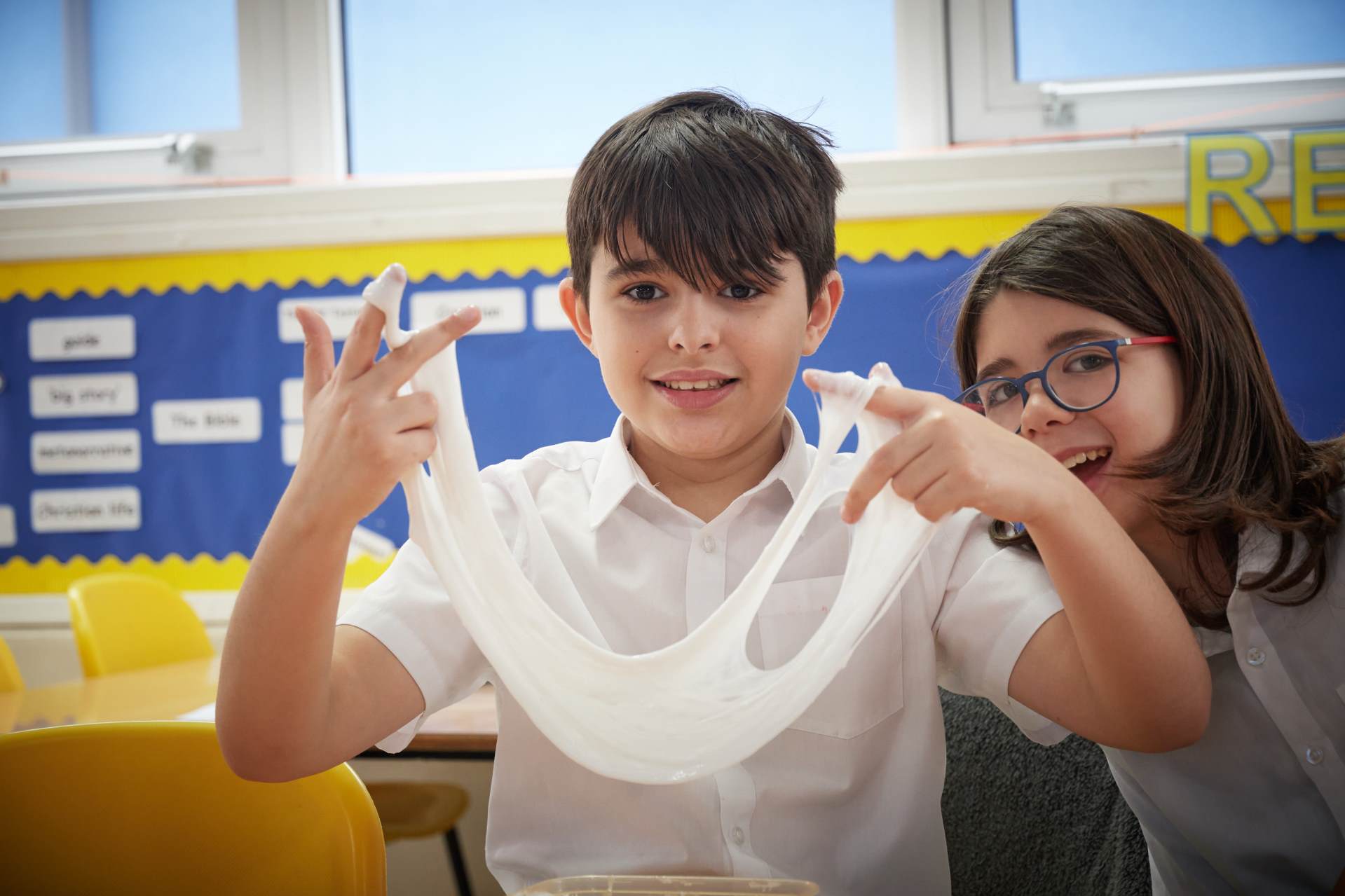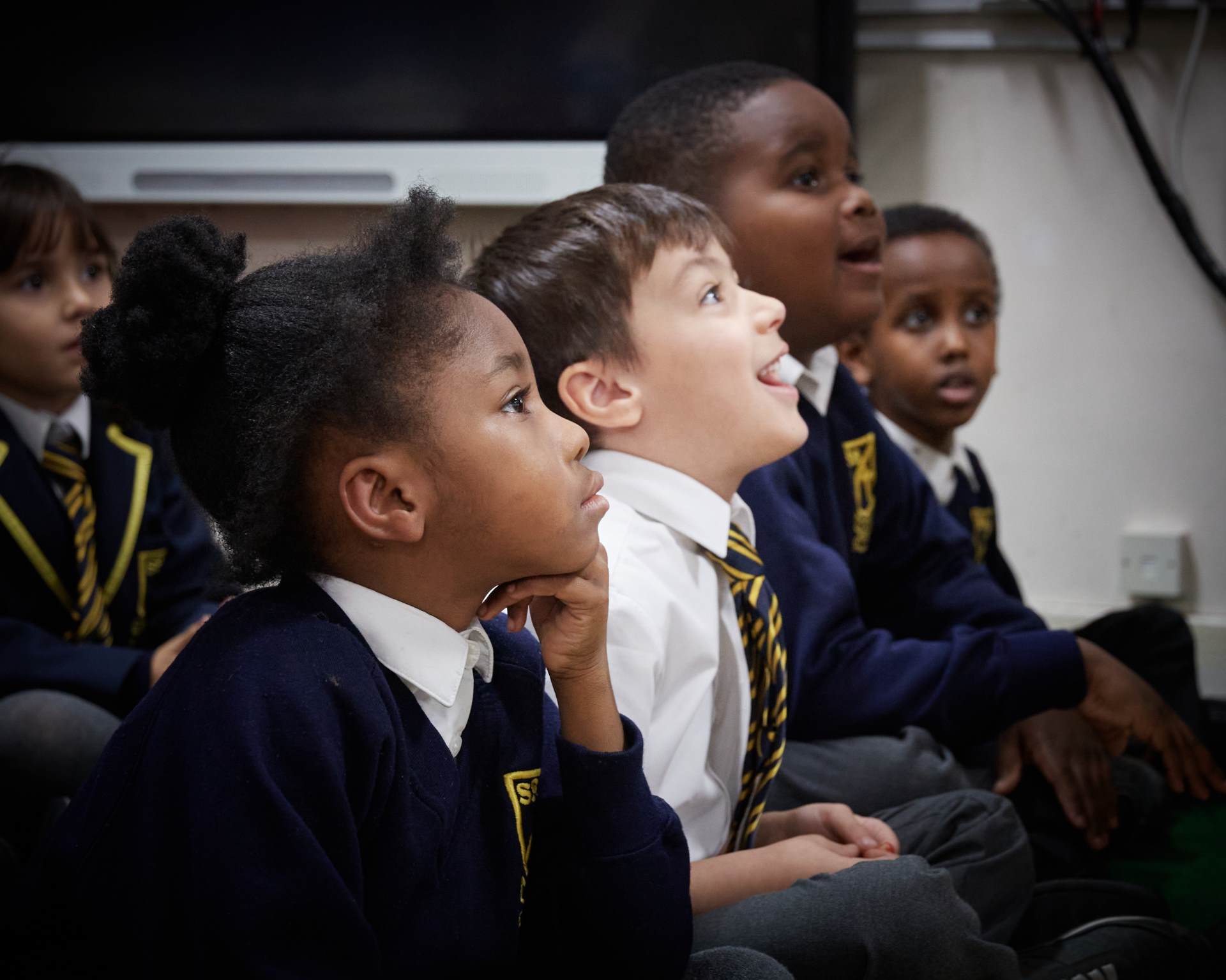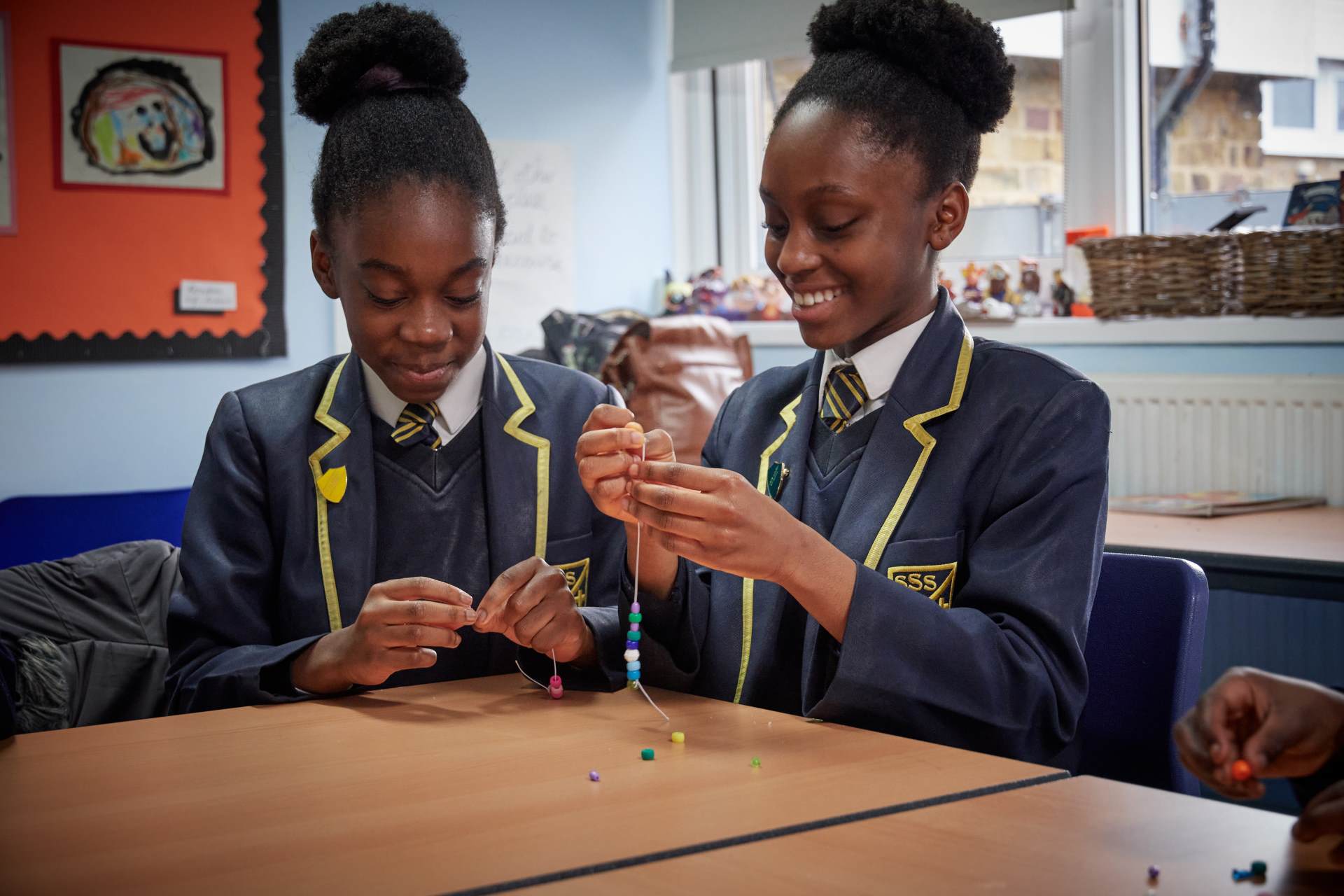Overarching Curriculum Intent Implementation and Impact
INTENT
Our curriculum is designed with a clear intent to empower, nurture and inspire every child to flourish academically and personally, fostering lifelong learning. Grounded in a commitment to providing enriching experiences, our curriculum aims to immerse children in progressive knowledge, skills, and critical thinking. It is our mission to equip them with the challenges of the 21st century.
St Stephen’s recognises that children need to become resilient citizens and to develop their technological skills for future learning.
Our curriculum intent aims to create an educational experience that not only imparts knowledge but also shapes well-rounded individuals equipped for success in our dynamic and interconnected world and future.

Our aim is to provide children with the knowledge and skills so that they can become historians, scientists, geographers, writers, and fluent readers. The expected impact focuses on developing their humanity and relevance as members of a diverse and interwoven society. The curriculum seeks to not only impart knowledge and skills but also instiLl values and a sense of responsibility that extends beyond the classroom.
IMPLEMENTATION
Enriching Experiences:
At St Stephens, we plan and deliver a curriculum that goes beyond textbooks, incorporating real-world experiences, field trips, and hands-on activities.
Fostering a culture of curiosity and exploration, encouraging children to actively engage with the learning process.
Enrichment of the curriculum through trips, visits and workshops.
Progressive Knowledge and Skills:
We aim for and develop a curriculum that evolves with the changing educational landscape, integrating the latest research and advancements.
We implement a skills-based approach, ensuring that children not only acquire knowledge but also develop the practical skills necessary for the modern world.
Critical Thinking:
This is embedded across all subjects, encouraging children to question, analyse, and evaluate information.
We also provide opportunities for problem-solving and decision-making, fostering the development of independent and analytical thought.
Personal Characteristics and Values:
Integrated in our practice is the teaching of personal characteristics such as resilience, responsibility, and respect as stated in the curriculum.
We create a positive and inclusive learning environment that nurtures the development of empathy, teamwork, and self-awareness.
Reflective and Responsible Learners:
We cultivate a culture of reflection, where children learn to assess their own progress and set goals for continuous improvement.
Promotion of a sense of responsibility towards oneself, others, and the environment, instilling a commitment to social and ethical values is a theme running across our curriculum.
Oracy Skills Development:
We emphasize the development of oracy skills from the early stages of education, ensuring that children can express themselves confidently and articulately.
We provide opportunities for public speaking, group discussions, and presentations to enhance communication skills. 
IMPACT
Academic Achievement:
Improved academic outcomes as children engage with a curriculum that is relevant, challenging, and aligned with educational standards.
Personal Development:
Enhanced personal development through the acquisition of values, character traits, and a positive mindset that prepares them to be resilient citizens.
Lifelong Learning:
Cultivation of a love for learning, instilling a mindset of curiosity and adaptability that prepares children for a lifelong journey of intellectual growth.
Critical Thinkers:
Children who can think critically, solve problems, and make informed decisions, contributing positively to society.
Responsible and Respectful Individuals:
Development of responsible and respectful citizens who understand the importance of ethical behaviour, empathy, and cultural sensitivity.
Effective Communication:
Proficient oracy skills that enable children to express themselves confidently, facilitating effective communication in various personal and professional contexts.
Cultivation of Values:
Integration of ethical considerations and the exploration of moral situations within subject areas, fostering the development of empathy and ethical decision-making.
Social and Cultural Awareness:
Inclusion of diverse perspectives in the curriculum, promoting an understanding of different cultures, histories, and social structures.
Community Engagement:
Opportunities for children to engage with their local and global communities, applying their knowledge and skills to address societal challenges and contribute positively.
Relevance to Contemporary Issues:
Integration of current events and contemporary issues into the curriculum, ensuring that children can apply their learning to understand and contribute to the challenges of the present.
Preparation for Citizenship:
Empowerment of children to become active and informed citizens, ready to participate in democratic processes and contribute to the well-being of society.
EXPECTED PUPILS’ DEVELOPMENT
Historians:
Our history curriculum emphasises critical analysis of primary and secondary sources of information, fostering an understanding of historical contexts and perspectives.
Children engage in historical inquiry, research, and debate, cultivating their skills as discerning historians.
Scientists:
An inquiry-based learning in science provides hands-on experiments and projects to develop scientific curiosity and problem-solving skills. It fosters a scientific mindset by emphasising the scientific method of learning, encouraging children to question, hypothesize, and draw evidence-based conclusions.
Geographers:
Integrating real-world geographical case studies into the curriculum, enables children to explore global issues and develop spatial awareness.
Incorporating technology and fieldwork opportunities enhance geographical skills such as map reading, data analysis, and environmental understanding.
Writers:
Our literacy-rich curriculum nurtures writing skills across genres, fostering creativity, clarity, and effective communication whilst providing regular opportunities for children to express themselves through various forms of writing, including poetry, essays, narratives, and persuasive pieces.
 Fluent Readers:
Fluent Readers:
We have a structured and progressive reading program, incorporating diverse texts to enhance comprehension, vocabulary, and fluency.
We implement strategies to support struggling readers (interventions, RWI) and promote a love for reading, making literacy an integral part of every subject.
Expected Impact
Historians:
Children develop a deep appreciation for history, are capable of analysing and interpreting historical events, fostering a sense of historical consciousness.
Scientists:
Children become empowered individuals with a strong foundation in scientific thinking, equipped to apply the scientific method to real-world problems and innovations.
Geographers:
Children become global citizens who understand the interconnectedness of the world, with developed geographical skills and an awareness of environmental issues.
Writers:
Our children are proficient communicators who can express themselves coherently and creatively, utilizing writing as a tool for self-expression and persuasion.
Fluent Readers:
Our children are competent and fluent readers who can navigate a variety of texts, comprehend complex information, and derive meaning from diverse literary genres





